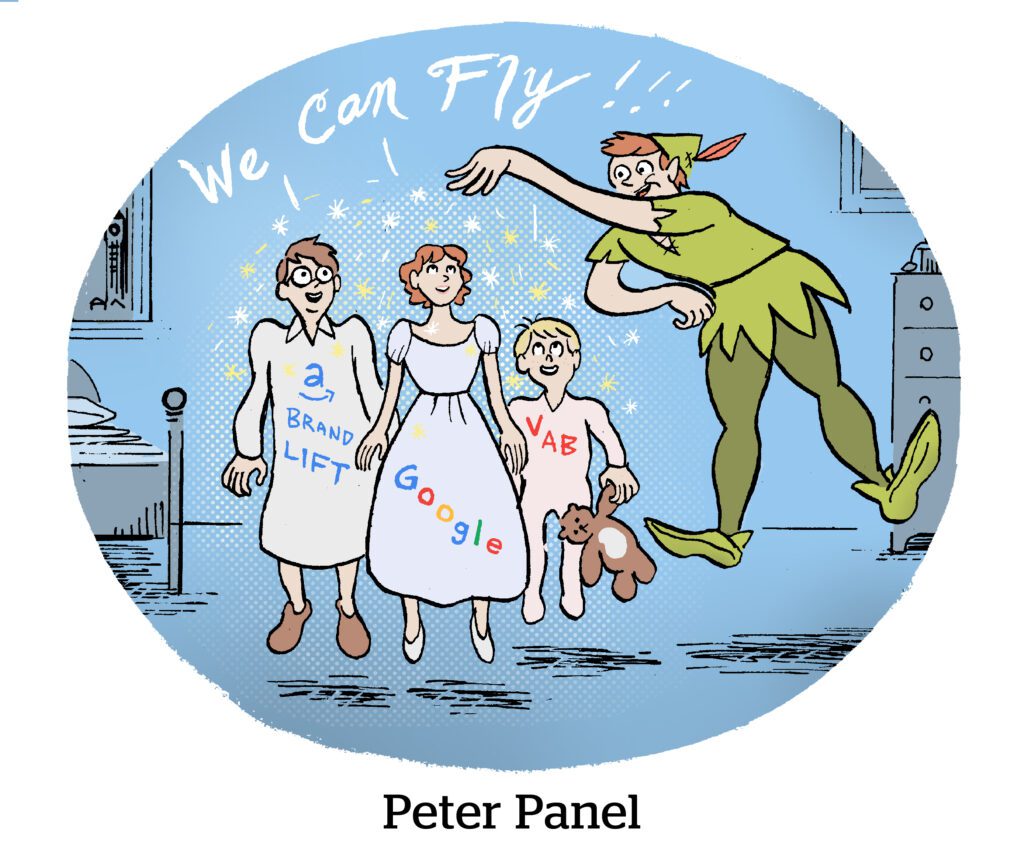Here’s today’s AdExchanger.com news round-up… Want it by email? Sign up here.
Currency Contest
Can the TV industry’s currency debate get any hotter? (For something so in the weeds, that is.)
Guess so. Nielsen has formally repudiated the broadcaster-backed joint industry committee’s (JIC) video standards agreement.
In a letter to OpenAP, the data vendor behind the JIC, Nielsen writes that the initiative must fix “fundamental issues” before it would consider joining.
Nielsen called out the committee’s stance that big data analytics is better than panel-based measurement. (Imagine that.) The JIC requires currency vendors to disclose if it reports campaign projections based on panels “representing less than 10% of the universe.”
The JIC drama will continue at least throughout the TV upfronts next month since this currency flareup is actually a subplot of that grand soap opera. This upfront season will be an interesting test of sales leverage because advertisers won’t be changing their spending patterns too much just yet for the sake of hypothetical future currencies.
Nielsen doesn’t need to be the measurement standard of everyone’s dreams. It just needs to be a currency that advertisers use to buy ads right now.
Zero Credit
The US government requires the three major credit agencies – Equifax, Experian and TransUnion – to provide a free credit report once per year.
AnnualCreditReport.com is the site where people can easily get that report. For the millions of people who use Google to research and request a credit report, it should be an easy-to-access portal from any “free credit report”-related query, writes Shira Ovide at The Washington Post.
Except, people aren’t directed to the free and easy credit report they’re entitled to. Instead, they’re trafficked to pages plastered with ads, tracking pixels, consent pop-ups, audience survey questions – and even services that charge people for a credit report.
That’s not the Google system misfiring; it’s what an ad-based search engine is built to do. Bing and DuckDuckGo (which defaults to Bing’s search ads) are plagued by the same issue, Ovide writes.
Credit report research is perhaps the keenest example of how search engines become beholden to advertisers, even in the most clear-cut circumstances that go against the intent of the search and best interests of the customer.
Non-Plussed
Broadcasters are trying to win the streaming market but none take risks to build strong individual streaming brands.
Just consider the propagation of “Plus” and “Max” product names for any subscription media. Salesforce should have put that trend to rest in 2021, but instead opted to launch Salesforce+. The joke isn’t funny anymore.
Nonsubscription streaming services get more license for individuality. (Freevee, anyone? Pluto? Tubi?) But, as recently as a few weeks ago, we saw the launch of AMC+, and “HBO Max” rebranded to simply “Max.” Huhum.
Max also dropped the iconic purple HBO branding, swapping it for blue. And if you haven’t noticed, Paramount, Disney, Amazon Prime and other streaming services also switched to a blue color, Marketing Brew reports.
The rationale? Blue is safe.
Blue is “the most loved color by the most audience segments,” says Warner Bros. Discovery Streaming group CMO Pato Spagnoletto about dropping HBO’s “distinct” and “fairly divisive” purple tone.
Yet streaming natives flaunt their distinction. YouTube and Netflix are sticking to shades of red, while Hulu keeps its weird alive with electric green.
But Wait, There’s More!
How the battle between TV networks and YouTube is fueling the measurement debate. [Ad Age]
The British government will introduce legislation to establish a new regulator to police the growing dominance of Big Tech platforms. [FT]
How the social traffic that gave life to BuzzFeed News ultimately led to its demise. [Digiday]
Pharma brands avoid Snapchat, TikTok and Pinterest more than they need to. [MediaPost]
You’re Hired!
Stagwell Marketing Cloud adds new advisors, including John Kahan, Microsoft’s former chief data analytics officer. [release]












